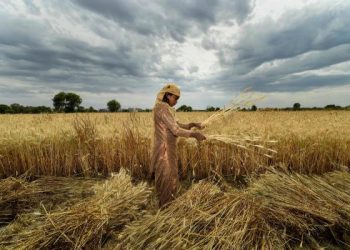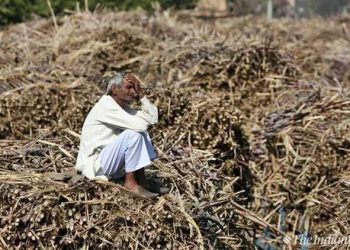- Former Indian diplomats have asked for amendment of the WTO agreement on agriculture
- Allege double standards in the agreement that makes SDGs tough to achieve for India
- The letter sought support for the contentious farm bills, claims it strikes the right balance
TAD NewsDesk, New Delhi: Alleging that the current WTO Agreement on Agriculture reflects double standards, a group of former Indian envoys have written an open letter to the World Trade Organisation. In the letter, the ex-diplomats highlighted that the agreement is characterised by “democratic deficit” and is based on “commercial realpolitik. Therefore, the group pressed on the demand for amending the agreement in order to facilitate developing and least developed countries to achieve Sustainable Development Goals of ending hunger and achieving food security.
Through the open letter, the former envoys emphasised on the “double standards that have skewed global production and markets”.
Pointing out the hypocrisy of the WTO and developed countries like the US, EU, UK and Cairns Group members which ask India to liberalise its agriculture markets, the envoys said that the politicians of these very countries criticize the Indian government for introducing farm laws. In other words, the developed countries can not impose liberalisation policies on India and then, express support to the farmers’ protest that is opposed to the privatisation of the agriculture market.
“The balance between market forces and food security/farmers’ welfare is a delicate one and it is the sovereign prerogative of governments to strike that balance,” the letter said.
“Both these demands are eminently reasonable but have not found acceptance by either US or EU or indeed by Cairns group which consists of countries which aggressively seeks markets for their agriculture exports.”
Bringing the inconsistency of the WTO provisions to the forefront, they observed that the agreement is difficult to abide by considering that the Aggregate Measurement of Support (AMS) cannot exceed 10% of the value of the production of a particular commodity in any given year in India as it practices public stockholding of food grains.
Further, when there is an import surge of a certain commodity, India is compelled to impose safeguard duties for protecting its domestic farmers from suffering losses.
“India can achieve the goal of food security, improved nutrition and sustainable agriculture only through public stockholding that will ensure farmers get adequate remuneration for their efforts and end hunger by distributing foodgrains to the most vulnerable sections. This is particularly important since India does not have a formal social security system or a system of unemployment dole,” the letter said.
Demanding support for the contentious farm bills enacted by the NDA government, the letter stated, “The farm laws passed by the Government are the measure to strike this delicate balance. They developed countries led by the US, EU and the Cairns Group have an opportunity to be on the right side of history here. They must support the efforts of developing and least developed countries even while agreeing to amend the WTO Agreement on Agriculture to accommodate the legitimate demands of the developing and the least developed countries”.
“The one that has riled the developing countries and least developing countries the most is domestic subsidies since the rules as they currently stand to penalise them much more than developed countries. It is almost as if Special and Differential Treatment was extended to the developed countries and not to the ones who deserved it,” the letter said.
Assuring that India would gradually be able to allow the market to influence prices of agricultural yield, the letter stated that the farm bills are in the greater interest of the farmers. Adding emphasis on sustainable agriculture, they asserted that it is necessary to adopt the latest technology to diversify production.
The letter has been ratified by former ambassadors and diplomats including Mohan Kumar, Veena Sikri, Bhaswati Mukherjee, Vishnu Prakash, Preeti Saran, Lakshmi Puri and Rajeev Bhatia.
Source – ANI










